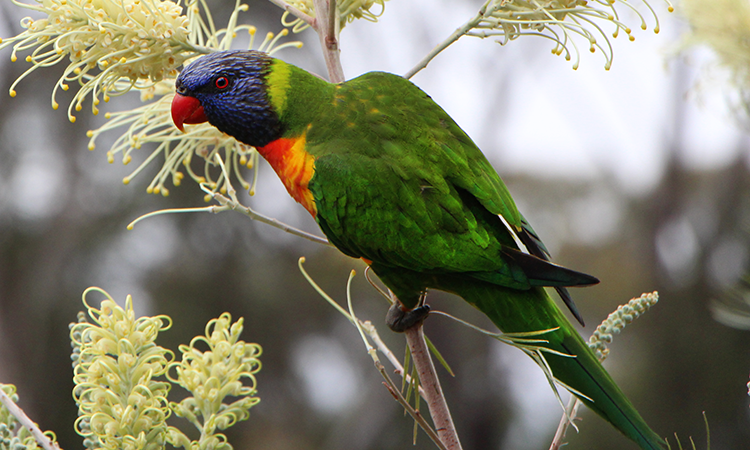Warning about dangerous parrot fever after several people test positive
Australians have been urged to avoid wildlife after three people were diagnosed with a potentially dangerous bacterial infection known as parrot fever.
Parrot fever, otherwise called psittacosis, has affected three residents living in Lithgow and the Blue Mountains, NSW, since April, according to the Nepean Blue Mountains Local Health District (NBMLHD).
Humans can be exposed to the rare bacterial infection through interaction with infected birds and their droppings.
“The bacteria that causes this infection can be found in wild bird populations across the state and has recently been detected in wild birds from the upper Blue Mountains and Lithgow,” the health district warned residents in a press released.

NBMLHD Director of Public Health Dr Bradley Forssman has told locals to be careful when outside.
“Exposure to birds, or dust containing bird droppings, can result in infection. Direct contact with wild birds, including handling and feeding, should be avoided where possible,” Dr Forssman said.
Symptoms may take between five and 28 days to develop and can range from a mild, flu-like illness to severe pneumonia, which is more common in older people, officials said.
“Early symptoms of psittacosis infection include fever, headaches, muscle aches and dry cough, and may progress to severe difficulty breathing,” according to the NBMLHD.
The disease can be treated with antibiotics but some cases require hospitalisation.

Veterinarian Stacey Gelis told the ABC poultry and pigeons can also carry psittacosis bacteria.
"Parrots or pigeons are probably the two species that most commonly carry it, that we know of, but it can affect any bird and also poultry," Dr Gelis said.
"Sometimes they can be totally asymptomatic, so they look totally normal, and at other times it can kill them."
Sneezing, runny eyes and green faeces could be signs a bird is infected.
Dr Gelis told the publication people who have birds for pets should avoid kissing them and should keep their cages clean.
Do you have a story tip? Email: newsroomau@yahoonews.com.
You can also follow us on Facebook, Instagram and Twitter and download the Yahoo News app from the App Store or Google Play.



